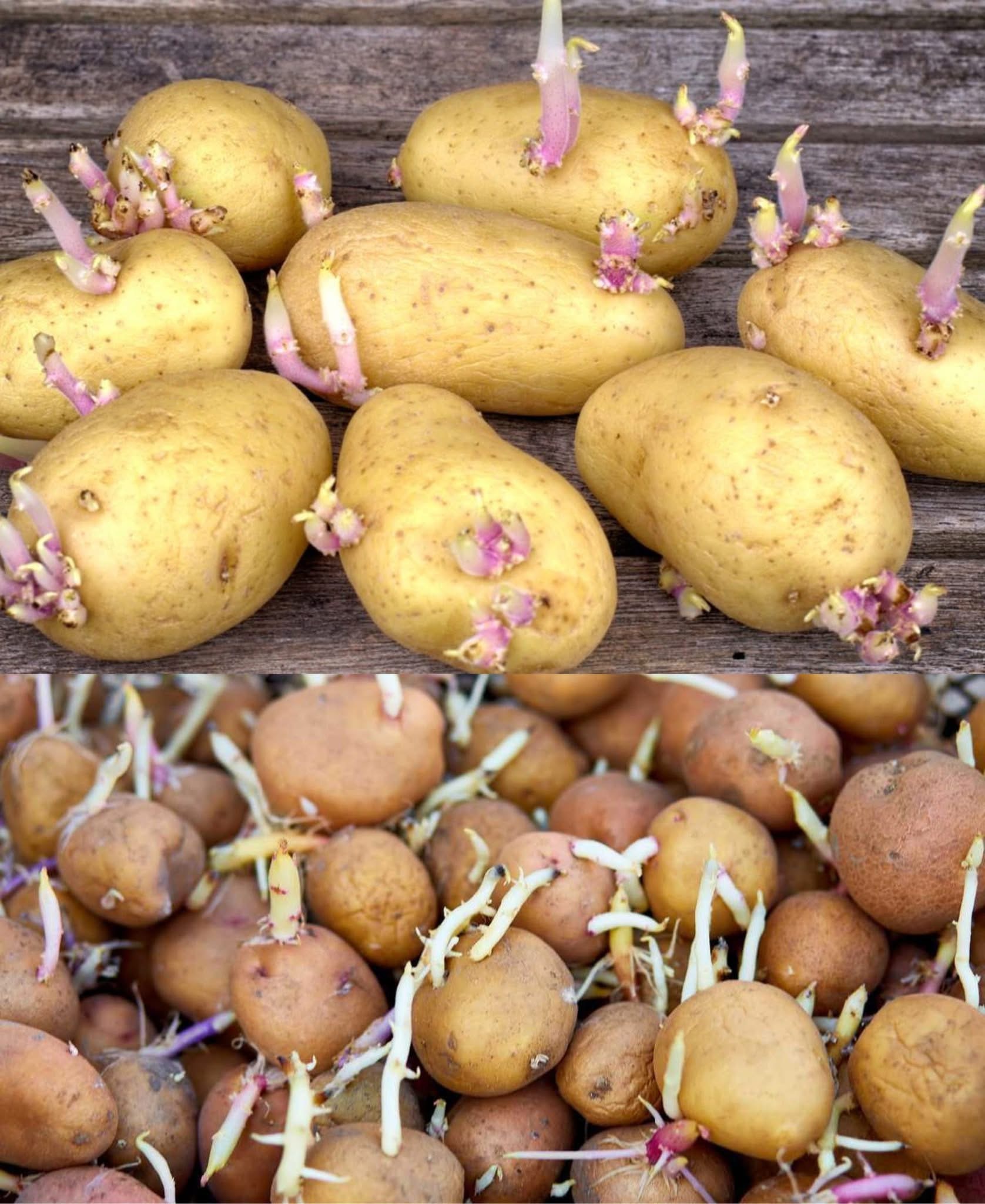Understanding Solanine in Potatoes: What You Need to Know
Solanine is a natural toxin (an alkaloid) found in certain plants, including potatoes. It serves as a defense mechanism against pests and fungi. In small quantities, solanine is harmless to humans, but higher concentrations, especially in sprouted or green potatoes, can pose health risks.
Key Facts About Solanine
- Natural Presence: Found in small amounts in potatoes, eggplants, peppers, and tomatoes. Cooking typically reduces solanine levels in most vegetables.
- Dangerous Conditions: Solanine levels increase in potatoes when:
- Sprouting occurs: Concentrated in the sprouts and the area beneath them.
- Green patches form: Indicates exposure to light, leading to higher solanine levels.
- Raw consumption: Eating raw potatoes in large quantities can be risky.
Potential Risks
- Symptoms of Solanine Poisoning: Nausea, vomiting, diarrhea, headaches, and in severe cases, neurological symptoms.
- Toxic Dose: For an adult, consuming over three kilograms of raw potatoes or sprouts is necessary to cause poisoning—an unlikely scenario.
How to Prevent Potatoes from Sprouting
- Store Properly:
- Use a wicker basket or other breathable containers to allow airflow. Avoid plastic bags.
- Store in a cool, dark place to slow sprouting. Light exposure promotes sprouting and green patches.
- Use Apples as a Natural Inhibitor:
- Place apples among your potatoes. Apples release ethylene gas, which delays sprouting.
- Buy Fresh Potatoes:
- Look for smooth, firm, and unwrinkled potatoes when shopping. Avoid tubers with visible sprouts.
- Remove Small Sprouts:
- If minor sprouting occurs at home, cut off the sprouts and any green areas before cooking.
FAQs About Solanine in Potatoes
1. What is solanine, and why is it in potatoes?
Solanine is a natural alkaloid found in potatoes and other nightshade plants, such as tomatoes and eggplants. It acts as a defense mechanism, protecting the plant from pests, fungi, and diseases.
2. Are sprouted potatoes safe to eat?
Sprouted potatoes can still be safe to eat if you remove the sprouts, the part below the sprouts, and any green areas. These parts contain higher concentrations of solanine. However, avoid potatoes with extensive sprouting or significant greening.
3. How do I know if my potatoes have too much solanine?
Potatoes with green patches or a bitter taste may have elevated solanine levels. If in doubt, discard any green or sprouted areas before consuming.
4. Can cooking destroy solanine?
No, solanine is heat-stable and cannot be destroyed through cooking or baking. Removing the affected areas (sprouts and green parts) is the best way to reduce solanine levels.
5. How can I prevent potatoes from sprouting?
- Store them in a cool, dark, and well-ventilated space.
- Keep them away from light, heat, and moisture.
- Place apples among your potatoes; the ethylene gas they release delays sprouting.
6. Are green potatoes safe to eat after peeling?
If the green color is limited to the skin and the flesh beneath is not green, the potato can be eaten after peeling. However, if the flesh is also green, it’s better to discard the potato.
7. Can eating raw potatoes make me sick?
Yes, raw potatoes contain solanine, which can cause stomach upset if consumed in large quantities. Cooking potatoes thoroughly reduces their overall health risks.
8. Are other vegetables in the nightshade family risky?
Eggplants, tomatoes, and peppers contain solanine, but in much smaller amounts than potatoes. Cooking further reduces solanine in these vegetables, making them safe to eat.
9. How much solanine is too much?
It takes about 3 kilograms (6.6 pounds) of raw potatoes or sprouts to reach toxic solanine levels for an adult, making solanine poisoning very rare.
10. What should I do with heavily sprouted or green potatoes?
If a potato has significant sprouting or greening, it’s best to discard it to avoid any potential risks. Always prioritize fresh potatoes for the best quality and safety.
Final Thoughts
While solanine poisoning is rare and requires consuming excessive amounts of raw or sprouted potatoes, taking precautions can ensure your potatoes remain safe to eat. Cooking potatoes thoroughly and properly storing them will keep solanine levels low and your meals deliciously worry-free.

